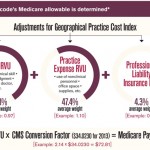The AMA has worked hard for physicians this year by:
- Advocating relentlessly to fix the Sustainable Growth Rate formula that determines Medicare reimbursement;
- Developing legislation allowing physicians to privately contract with Medicare patients; and
- Commenting to the Centers for Medicare and Medicaid Services (CMS) during federal comment periods and encouraging changes to the Accountable Care Organization rules so more physicians could participate.
Additionally, a report was provided to the AMA Delegates at the AMA annual meeting in June 2011 outlining the “AMA Performance, Activities, and Status in 2010.” This report included improvements to access to care that were part of health care reform, such as eliminating disqualifications due to preexisting conditions and lifetime limits on benefits. Another highlight of the report was that the AMA, along with the American Association of Medical Colleges, helped advocate for a $168-million distribution of Title VII funding to support residency training, which created more than 900 new primary care residency positions.
I’m not surprised by the negative reactions I get when I discuss the AMA, because I used to be one of those people, and occasionally I still am. However, just as the ACR has recognized the need to have a political action committee, we also need to acknowledge that, on a national level, the AMA is the organization that is most recognized as speaking for us. This is true whether we like it or not.
Learn More about AMA Activities
You can read more about AMA performance, activities, and status in 2010 by downloading the June 2011 Reports of the Board of Trustees at http://www.ama-assn.org/assets/meeting/2011a/a11-bot-reports.pdf and viewing pages 122–131.
Why Does the ACR Care about AMA Membership?
Many ACR members are wondering why I am even discussing the AMA in TR, the newsletter for rheumatology about rheumatology issues. Well, just as I rejoined five years ago, it is again time to be counted; the ACR must show the AMA that we have 1,000 ACR members in 2012 that also belong to the AMA so we can remain part of the AMA Federation.
Why you care (or should care) about the AMA Federation:
Rheumatology Represented in CPT Discussions
Gerald Eisenberg, MD, is the Current Procedural Terminology (CPT) advisor for the ACR. Having a rheumatologist as a CPT advisor gives the ACR a voice as CPT codes are being developed and modified. No seat, no voice in CPT discussions.
Rheumatology Represented in Reimbursement Discussions
Timothy Laing, MD, is on the Relative Value Update Committee (RUC), Eileen Moynihan, MD, is the alternative RUC representative for the ACR, and Alfonso Bello, MD, is the ACR advisor. The RUC makes recommendations to CMS regarding reimbursement for CPT codes. There are many important codes that will be presented to the RUC for evaluation this year, including infusions, large joint injections, and musculoskeletal guidance. Having a rheumatologist sitting at the table gives the ACR a vote. Having an RUC advisor gives the ACR an opportunity to present information on codes relevant to rheumatologists. No seat, no voice in physician reimbursement discussions.
A Seat in the House of Delegates (HOD) Means a Voice on Policy
The HOD is the policy making body of the AMA. Gary Bryant, MD, Dr. Moynihan, and Colin Edgerton, MD, serve as the ACR’s delegate, alternate delegate, and young physician section delegate, respectively. The AMA HOD reviews hundreds of resolutions twice a year to determine which resolutions will become policies of the AMA. Policies that have recently been discussed include balance billing, drug shortage, maintenance of licensure, and many others. No seat, no voice in some of the most influential policies affecting medicine.
Voice in Advocacy
The AMA has one of the strongest lobbies for organized medicine, and the ACR is privileged to sign on to letters developed by the AMA. The AMA provides updates and strategy allowing the ACR to assist in federal legislative efforts, which include stopping the anticipated Medicare physician fee schedule cuts each year, educating Congress regarding medical liability, patient safety, and more. No seat, no voice in influencing medicine’s legislative and regulatory agenda.
Don’t Silence Rheumatologists
Rheumatology needs to have a voice in these groups. Is the AMA perfect? Far from it, but, until or unless another larger or more recognized group arises, the change needs to happen from within the existing structure of the AMA. We need people to join the AMA to make the change. I am asking all the people in my department to join. I am asking the ACR board of directors and committee chairs to join. I am now asking you to join.


